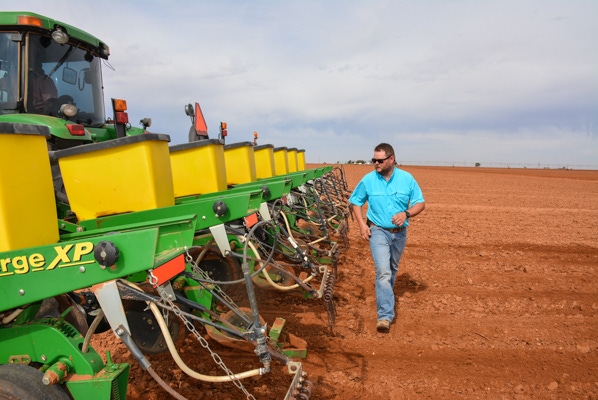
Before a peanut is planted this spring, an Oklahoma weed scientist challenges growers to set a yield goal and stick to it.
“From a management standpoint, everything you do correctly from when that goal is set, including weed control, helps you maintain it,” says Weed Scientist Dr. Todd Baughman, Oklahoma State University Department of Plant and Soil Sciences. “And anything you do to miss that window, lowers that yield goal.”
Baughman addressed peanut growers at the Oklahoma Peanut Expo, March 14, in Weatherford, Okla., where he also stressed the importance of timing. “Making sure you carry out a management plan in a timely fashion will also help maintain the goals set at the start the season.”
MANAGEMENT PROGRAM
When it comes to weed control, especially for peanuts, Baughman says it’s important for growers to see it as an entire management program. “There’s not one single product that's going to solve your problem, and therefore you've got to start with a good foundation underneath you,” says Baughman, who recommends starting with a yellow herbicide.
See, Peanut growers encouraged to be patient about contracting
“Whether it’s preplant incorporated or watered in with pivot or injected through the pivot, it's a cheap option that’s beneficial for a lot of the problem weeds we incur.”
But Baughman says growers need to follow that up with a good preprogram, along with timely post applications. “Upfront, you've got to budget for a system not a single product, so you can make sure and use a program approach for effective weed control.”
If any of those steps are missed, Baughman says a peanut grower will be disappointed not only in their yields but on the backend as well. “Both from a harvest and yield standpoint, the field has to been clean at the end of the year. You may not lose a lot of yield per se from a competition standpoint, but it can result in either digger or harvesting losses.”
RESISTANCE MANAGEMENT
Having a program approach also plays an important role in resistance management. “If you'll use each of those individual steps, often you're going to be using different chemistry, which is going to be a proper approach from a resistant management standpoint. But if you're getting by and relying on one or two of those steps, it’s potentially going to lead to some issues,” says Baughman.
CROP ROTATION
Crop rotation is also beneficial. “You need to rotate peanuts to maintain your yield. Growers need to consider how their program fits with their other herbicide programs and crops to make sure they’re doing the best job they can to avoid developing resistance to one of these particular chemistries,” explains Baughman.
See, Peanut program seeks nominees to celebrate its 20th class
While 2018 was plagued by drought followed by harvest rains, Baughman says 2019 is starting with a better soil moisture profile. “But with this moisture, early season weed control prior to planting can be a lot bigger problem than last year or so it’s important growers watch and be ready to respond.”
Baughman encourages growers to make sure they’ve got a good burndown program. “The biggest key with any crop, is to make sure you’ve adequate time between burn down and planting, a two-week, clean-window period. While we’ve got good moisture, don’t allow it to use up what beneficial moisture we have.”
About the Author(s)
You May Also Like






